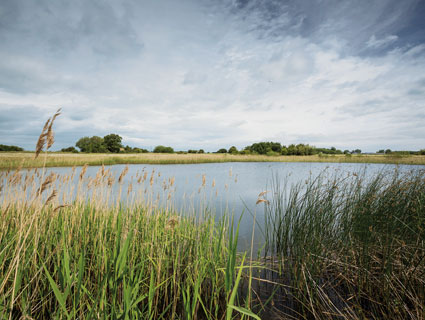Cargill pledges to restore 600 billion liters of water by 2030
- July 27, 2020
- Posted by: Lyn Wilson
- Category: Agriculture, Corporate, Environmental, Water Treatment, North America

Cargill is an organization committed to developing and accelerating agriculture solutions that protect and enhance water resources and believes that reliable access to clean water is essential for people and agriculture. Consequently, the company has set new global water targets to achieve sustainable water management in its operations and all priority watersheds by 2030.
To improve access to clean water and to attain its water targets Cargill will do the following:
- Restore 600 billion liters of water in priority watersheds
- Reduce 5 million kg of water pollutants in priority watersheds
- Improve access to safe drinking water in 25 priority watersheds
- Implement our Water Stewardship program at 81 priority facilities by 2025
CEO for Cargill Dave MacLennan said:
“The world relies on access to clean water, for health, nutrition and economic prosperity. We must find ways to improve water quality and availability in the communities where we live and work, while also advancing the sustainability and efficiencies of our supply chains. We are focusing on the specific challenges faced by local communities and watersheds to accelerate our positive impact.”
Agriculture feeds the world, but it is also a major contributor to global water challenges and greenhouse gas emissions. With approximately 70% of the world’s freshwater being used for agriculture, the organization knows how critical it is to protect and enhance its water-use.
The Ohio State University College of Food, Agricultural and Environmental Sciences (CFAES) is working in a partnership with Cargill who is also cooperating with Ohio State Water Quality Extension Associates to engage farmers in implementing regenerative agriculture practices focused on soil health and nutrient management.
The company will also support the formation of a Water Quality Research Consortium to promote applied interdisciplinary on farm research across the state, parts of which have been affected by harmful algal blooms.
MacLennan said:
“When we invest in regenerative agriculture programs that enhance soil health and reduce greenhouse gas emissions, we also improve water quality, increase drought resilience and improve access to clean water. By working across the industry and sharing best practices, we can protect the world’s freshwater resources and help create a resilient, equitable economy with enough clean water for all.”
As a member of the Water Resilience Coalition, the company is committed to working with other companies, governments and communities to reduce global water stress by 2050.
The company’s targets are science-based and were developed in close partnership with the World Resources Institute (WRI).
Sara Walker, Senior Manager, Water Quality & Agriculture at the World Resources Institute (WRI) commented on Cargill’s latest ambition that sets targets specific to the catchment context and severity of the local water challenges:
“WRI applauds this leading approach and believes it will help pave the way for other companies across the world to adopt – and act upon – their own contextual water targets so that we can collectively move the needle on more sustainable water use.”
The company believes that agriculture is how the global food system can become more sustainable. In addition to its global water targets, Cargill’s sustainability efforts focus on land use, climate, farmer prosperity, and food security.
